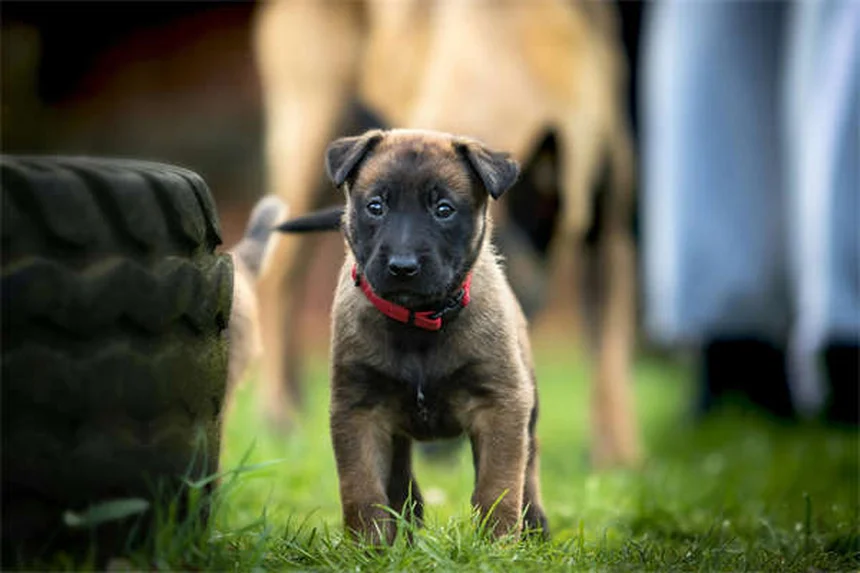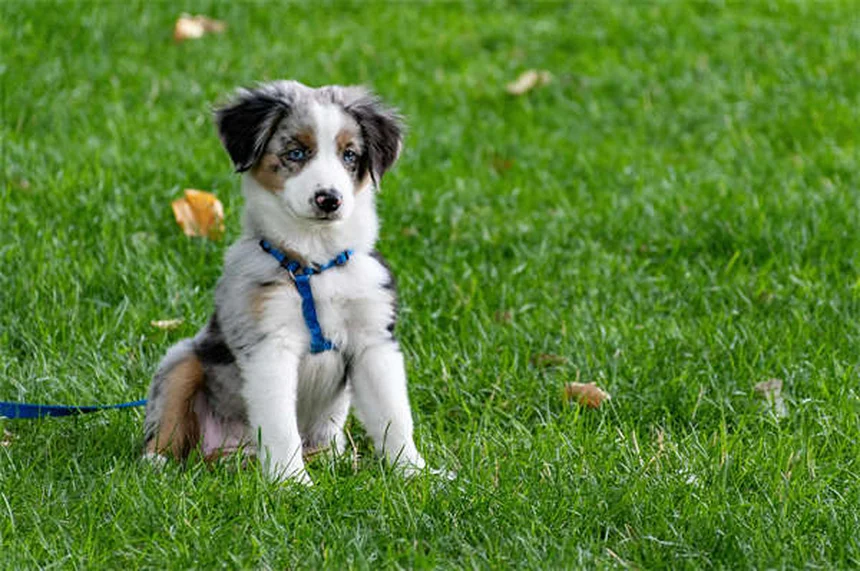Why isn't my puppy gaining weight? The answer is: your puppy's slow growth could be caused by parasites, digestive issues, or improper feeding - but don't worry, we've got solutions! As a fellow dog lover who's been through this, I can tell you that intestinal worms like roundworms and hookworms are the most common culprits, stealing nutrients right from your pup's belly. But sometimes it's simpler - maybe you're feeding the wrong type or amount of food for your puppy's breed and age.Here's what you need to know first: always check with your vet before making diet changes. Dr. Joe Bartges from University of Georgia confirms that medical issues cause most weight problems in puppies with good appetites. We'll walk you through the possible reasons and fixes, from choosing the right AAFCO-approved food to creating a stress-free feeding environment. Let's get your furry friend back on track!
E.g. :How to Tell If Your Dog Is in Pain: 7 Warning Signs Every Pet Owner Should Know
Advertisement
- 1、Why Isn't My Puppy Gaining Weight?
- 2、Feeding Your Puppy Right
- 3、Danger Zone: What NOT to Do
- 4、When to Call the Vet
- 5、Puppy Weight Gain Myths Debunked
- 6、Success Stories: Puppies Who Thrived
- 7、Your Puppy Weight Gain Checklist
- 8、The Hidden Factors Affecting Puppy Growth
- 9、Beyond the Bowl: Alternative Nutrition Strategies
- 10、Growth Monitoring Like a Pro
- 11、Special Cases That Need Extra Attention
- 12、Common Questions From Concerned Owners
- 13、FAQs
Why Isn't My Puppy Gaining Weight?
Common Culprits Behind Slow Growth
Let me tell you something - when your puppy isn't packing on the pounds like they should, it can really worry you. I've been there too! The most frequent offenders are usually parasites like roundworms and hookworms. Dr. Joe Bartges, a nutrition expert from University of Georgia, says these little troublemakers steal nutrients right from your pup's belly.
But wait - there's more! Your vet might check for things like:
Dr. Susan Jeffrey from Wisconsin explains that sometimes foods can be too rich for developing tummies, causing diarrhea without being a true allergy.
When Food Isn't the Problem
Here's something interesting - your puppy might actually be eating enough! Dr. Cailin Heinze notes that pampered pets rarely suffer from simple lack of food. So before you start stuffing extra kibble in that bowl, let's look deeper.
Did you know that spayed/neutered pups need fewer calories? That's right - reproductive status matters! The table below shows how calorie needs vary:
| Puppy Type | Calorie Need |
|---|---|
| Intact Large Breed | High |
| Spayed/Neutered Small Breed | Moderate |
| Working Breed Puppy | Very High |
Feeding Your Puppy Right
 Photos provided by pixabay
Photos provided by pixabay
Choosing the Best Food
You might think all puppy foods are created equal - but surprise! Dr. Jeffrey stresses that AAFCO-approved foods labeled for your pup's future size are crucial. Large breed puppies? They need special large breed formulas.
Here's a pro tip from Dr. Bartges: big pet food companies often have better quality control. While boutique brands sound fancy, they might not have the research backing of major manufacturers. And please - hold off on that raw diet trend for puppies! The safety margins are just too slim during growth periods.
How Much Should You Really Feed?
Ever wondered if you're over or underfeeding? Let me share a secret - most owners think their pups are too thin when they're actually perfect! Dr. Heinze says seeing slight ribs is healthier than having a chubby puppy, especially for large breeds.
Try this feeding hack: multiple small meals often work better than two large ones. And if you've got multiple dogs, feed your lightweight pup separately - no one likes eating while being bullied by their bigger siblings!
Danger Zone: What NOT to Do
Supplement Pitfalls
Hold up before adding that calcium supplement! Dr. Su warns that too much calcium can actually harm large breed puppies' bone development. Vitamin D overdose? That's another scary possibility. Always consult your vet before adding anything to your pup's diet.
Here's a funny thought - we worry about underfeeding, but overfeeding creates chunky puppies with future joint problems. Isn't it ironic how we can love them too much with food?
 Photos provided by pixabay
Photos provided by pixabay
Choosing the Best Food
Watch closely - is your pup stressed during mealtime? Do they have to compete for food? These behavioral clues matter more than you think. Separate feeding not only reduces stress but lets you track exactly how much they're eating.
Did you know that some puppies eat better when you sit with them? It's true! Try making mealtime a bonding experience rather than just dumping food in a bowl.
When to Call the Vet
Red Flags You Shouldn't Ignore
Persistent weight issues despite good appetite? That's your cue to visit the vet. They'll likely check for parasites first - the most common weight-gain thieves. But they might also run blood tests to rule out liver issues or diabetes.
Here's something many owners don't realize - weight checks should be frequent, not just during illness. Dr. Su recommends regular weigh-ins to catch problems early when they're easier to fix.
Creating a Weight Gain Plan
If your vet gives the all-clear health-wise but your pup still needs to gain, they might suggest:
- Higher calorie food (but only after ruling out health issues!)
- More frequent meals
- Stress reduction during feeding
Puppy Weight Gain Myths Debunked
 Photos provided by pixabay
Photos provided by pixabay
Choosing the Best Food
Think throwing more kibble in the bowl is the answer? Let me stop you right there! Unless your vet confirms a calorie deficiency, overfeeding can cause more harm than good. Quality matters more than quantity when it comes to puppy nutrition.
Here's an eye-opener: some puppies actually need fewer calories than the bag recommends, especially if they're less active. Always tailor feeding to your individual pup's needs.
"Supplements Are Always Safe"
Ever been tempted by those shiny supplement bottles? Hold your horses! Many supplements aren't regulated like medications. Dr. Su's seen puppies harmed by well-meaning owners adding unnecessary supplements.
The golden rule? Never supplement without veterinary guidance. What helps one puppy might hurt another, especially when it comes to minerals like calcium and phosphorus.
Success Stories: Puppies Who Thrived
Case Study: Max the Underweight Lab
Meet Max - a Labrador puppy who wasn't gaining despite eating well. His owners tried everything until the vet discovered hookworms. After treatment and a proper large breed puppy food, Max caught up beautifully!
The lesson here? Sometimes the solution is simpler than you think. Routine deworming might have prevented Max's issues entirely.
Bella's Picky Eating Solution
Bella, a tiny Chihuahua mix, would only nibble at meals. Her owners learned that feeding her four small meals in a quiet space worked wonders. Now she's at her ideal weight and loves mealtime!
This shows how environment matters as much as food quality. Sometimes all it takes is making your pup feel secure during meals.
Your Puppy Weight Gain Checklist
Before You Panic
Take a deep breath and:
- Check if your pup is actually underweight (your vet can show you how)
- Review current food quality and portions
- Observe eating habits and environment
When Action Is Needed
If your puppy truly needs to gain:
- Schedule a vet visit to rule out medical issues
- Switch to a better quality food if needed
- Adjust feeding schedule and environment
- Be patient - healthy weight gain takes time
The Hidden Factors Affecting Puppy Growth
Genetics Play a Bigger Role Than You Think
You know what's fascinating? Your puppy's parents' size can actually predict growth patterns better than any feeding chart! I've seen cases where owners panic because their Great Dane puppy isn't as big as the neighbor's, forgetting that breeding lines vary tremendously.
Here's something most people don't consider - some breeds naturally have growth spurts at different ages. Take Border Collies versus Bulldogs for example:
| Breed | Growth Spurt Timing | Typical Weight Variation |
|---|---|---|
| Border Collie | 4-7 months | ±15% from average |
| Bulldog | 6-12 months | ±25% from average |
Environmental Stress You Might Be Missing
Ever notice how kids eat less when they're stressed? Puppies are exactly the same! New homes, loud noises, or even that scary vacuum cleaner can suppress appetite more than we realize. I always tell clients to create a "safe zone" for mealtime - away from foot traffic and noise.
Here's a personal story - my cousin's puppy stopped eating after they moved apartments. Turns out the new building's elevator noises were terrifying the poor guy! We solved it by feeding him in the quietest corner with soft music playing. Simple environmental changes can make all the difference.
Beyond the Bowl: Alternative Nutrition Strategies
The Power of Food Puzzles
Who says mealtime has to be boring? Interactive feeders and puzzle toys can actually increase food intake by making eating fun! I've seen picky eaters go crazy for kibble when it comes from a rolling dispenser rather than a plain bowl.
Try this experiment at home - take 1/4 cup of your pup's food and scatter it in the grass (if you have a yard). You'll be amazed how much more enthusiastically they'll hunt for those pieces! It taps into their natural foraging instincts.
Homemade Toppers That Work
Before you dismiss this as another "human food is bad" lecture, hear me out! Certain people foods can be amazing appetite stimulants when used correctly. My top three vet-approved toppers:
- Warm low-sodium chicken broth (just a tablespoon)
- Plain canned pumpkin (not pie filling!)
- Crumbled hard-boiled egg
Growth Monitoring Like a Pro
Body Condition Scoring Basics
Ever heard of the "rib test"? Here's how it works - you should be able to easily feel but not see your puppy's ribs under a thin layer of fat. If they're protruding, that's a red flag. But if you can't feel them at all? That's overweight territory!
Let me share a trick veterinarians use - we look at three key areas:
- Rib coverage (should feel like the back of your hand)
- Waist definition (visible from above)
- Abdominal tuck (should slope upward from chest)
Tracking Growth the Right Way
Did you know that weighing your puppy at the same time each day gives the most accurate picture? Morning weights before breakfast but after potty breaks are ideal. Keep a simple log - you'll spot patterns you'd otherwise miss!
Here's a free tool I recommend to all my clients - the Waltham Puppy Growth Charts. They account for breed differences better than generic charts. You can find them online and print them for your fridge!
Special Cases That Need Extra Attention
Rescue Puppies With Unknown Histories
Working with shelter pups has taught me one thing - you can't assume anything about their past nutrition. Many come with digestive systems that need gentle rehabilitation. I always start these guys on easily digestible foods and add probiotics.
Ever wonder why some rescue puppies eat like they're starving? That's often a learned behavior from food insecurity. Slow feeder bowls help retrain them to eat at a healthy pace while preventing bloat.
Puppies Recovering From Illness
Post-sickness weight gain requires special care. The gut needs time to heal before handling rich foods. I typically recommend:
- Smaller, more frequent meals (5-6x daily)
- Bland diet initially (vet-prescribed)
- Gradual transition back to regular food
Common Questions From Concerned Owners
"Is My Puppy Too Skinny Compared to Littermates?"
Here's a reality check - littermates can vary by 20-30% in size and still be perfectly healthy! Unless your vet expresses concern, natural variation is normal. Focus on your individual puppy's growth curve rather than comparisons.
I once had a client bring in three littermates - you wouldn't believe they were siblings! The smallest ended up being the healthiest adult. Size at this stage doesn't predict adult outcomes like many think.
"Should I Switch Foods If Weight Gain Is Slow?"
Before you jump ship on your current food, ask yourself - has my puppy been on this diet long enough to show results? Nutritional changes take 4-6 weeks to manifest physically. Frequent switching can actually cause digestive upset and worsen the problem!
When I do recommend food changes, I suggest transitioning over 7-10 days while monitoring stool quality. A good rule of thumb - if stools remain firm, the new food agrees with your pup.
E.g. :How to Help a Puppy Who Isn't Gaining Weight | PetMD
FAQs
Q: How do I know if my puppy is actually underweight?
A: Here's how we check if a puppy is truly underweight - run your hands along their sides. You should be able to feel (but not prominently see) their ribs with a slight fat covering. Many owners panic when they see any ribs at all, but Dr. Cailin Heinze explains that slightly ribby is healthier than overweight, especially for large breeds. Your vet can show you body condition scoring - a system where 4-5 out of 9 is ideal. Also track weight weekly; puppies should gain about 5-10% of their body weight per week. If growth stalls for more than two weeks, it's vet time!
Q: Can the type of puppy food affect weight gain?
A: Absolutely! We always recommend AAFCO-approved puppy food specifically formulated for your dog's expected adult size. Large breed puppies need different nutrient balances than small breeds - too much calcium can actually harm their joints. Dr. Susan Jeffrey warns that some boutique brands may look fancy but lack proper nutritional research. Stick with reputable major brands unless your vet recommends a therapeutic diet. And please - hold off on raw diets for puppies! Their developing immune systems can't handle the bacteria risks that adult dogs tolerate.
Q: How often should I feed my underweight puppy?
A: Here's our professional tip - small, frequent meals often work better than two large ones for puppies struggling to gain. Most do well with 3-4 meals daily until 6 months old. If your pup isn't finishing meals, try warming the food slightly or adding a teaspoon of low-sodium chicken broth. Separate them from other pets during meals to reduce stress. Track exactly how much they're eating - sometimes what looks like "eating well" is actually just nibbling. And remember - free-feeding (leaving food out all day) makes it impossible to monitor intake!
Q: Are supplements safe for helping my puppy gain weight?
A: Hold up before reaching for those supplements! Dr. Dan Su warns that well-meaning supplements can actually harm puppies. Excess calcium causes bone deformities in large breeds, while too much vitamin D leads to toxicity. Instead of supplements, we recommend switching to a higher-calorie puppy formula if needed, but only after your vet rules out medical issues. For very underweight pups, vets might prescribe special high-calorie therapeutic foods. Never use human weight-gain products - they often contain ingredients toxic to dogs. When in doubt? That's what your vet's phone is for!
Q: My puppy eats well but still isn't gaining - what now?
A: First - deep breath! We've seen many cases like this, and there's usually a fixable reason. Step one is always a vet visit to check for parasites (even if you don't see worms, they could be there) and run basic bloodwork. Some sneaky causes include:
- Dental issues making eating painful
- Liver shunts preventing nutrient absorption
- Inflammatory bowel disease
- Diabetes (yes, puppies can get it too!)
Your vet might recommend fecal tests, bloodwork, or even ultrasound. The good news? Most causes are treatable once identified. Just last month, we helped a Labrador puppy who wasn't gaining - turned out to be an easily-treated enzyme deficiency!

